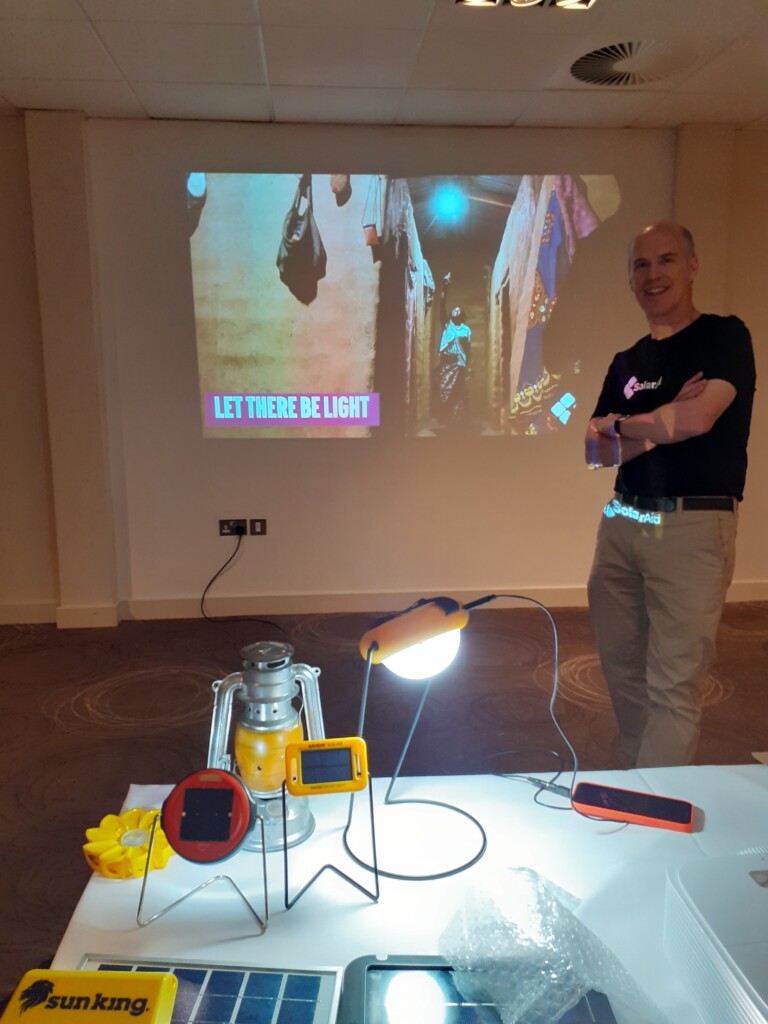At our supper meeting on 18 July we listened to Richard Turner, Director of fundraising for Solar Aid. It is a charity we have supported for some time, along with a similar charity Little Sun. The aim is to provide light in developing countries which have no access to electricity. As suggested the power comes from the sun. Over recent years the individual solar powered lights have gone from small personal units to enabling whole rooms and clinics to have light in the darkness. Richard tells us how and what they are doing.
 Richard has spent over 30 years in the voluntary sector, previously with Oxfam and Action Aid, before moving to Solar Aid where he has been for 11 years. Their programmes concentrate in sub-Saharan Africa, principally Malawi and Zambia. These represent some of the poorest countries.
Richard has spent over 30 years in the voluntary sector, previously with Oxfam and Action Aid, before moving to Solar Aid where he has been for 11 years. Their programmes concentrate in sub-Saharan Africa, principally Malawi and Zambia. These represent some of the poorest countries.
‘Countries like these’, he says, ‘have no access to light outside of daylight hors. This prevents work and study out of hours’. The main concern was to reduce the obvious dangers of having open flame kerosene lamps and candles; limited and unreliable and inefficient.
The original solar lamps were designed by students in Manchester and have since taken on different uses such as for festivals, camping, outdoor events etc. Richard was keen to tell us about their exciting new projects.
The first one a group project called The Shining Mothers (they named their own group) who, by forming a group and buying a small selection of light, introduce them to their friends, families and neighbours, encouraging them to look at the benefits of solar lights. The price ranges from $5 to $40 so by investing in a small light for the benefit of the family, this can bring about a change in their self esteem and provide an income to these groups.
A further project is the Light Library – these have lightbrarians – where a light can be booked out in the same way as a book, for a small fee. This helps those who cannot afford the initial outlay. It is being extended into schools who can then make an income from the borrowed lights and a credit scheme is being created. They are also working with the charity Book Aid to facilitate this programme.
The bigger picture is then to Light a Village. Solar Aid will install the necessary lighting and then ask the villagers what they are prepared to pay for the light they use. This is then set up by way of a scheme called Sunny Money and a process is set up whereby the payments can be made on a weekly basis by one particular person.
Solar Aid does not give their lights away for free, but builds a culture of pride by giving the light a value. As Richard says, ‘as a charity we make a loss…’
The Solar Aid mission is to light up every school/clinic/home by 2030 which fits in with the SDGs.
You can see Richard’s presentation here
SI Winchester will be holding a fundraising cream tea weekend on 6 and 7 August

